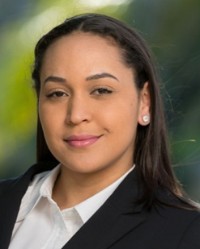Private Equity 2025
Cayman Islands
Trends and Developments
While the fundraising environment continued to be challenging throughout 2024, private equity capitalised on the recovery of the financial markets following the prolonged period of market volatility, high interest rates and inflationary pressures, with a significant rebound in deal activity and notable increases in deal value and the number of large private equity deals. Such confidence in the financial markets continued into the first quarter of 2025, with a strong start to the year’s activity levels and private equity firms eager to deploy the near-record levels of dry powder that had accumulated. Ultimately, however, a challenging geopolitical environment and global trade policy pressures during the first half of 2025 have led to a dip in deal activity levels, with fundraising looking set to remain challenging for the second half of the year.
However, in a show of resilience and adaptability, private equity firms are increasingly leveraging advancements in artificial intelligence (AI) and digital infrastructure in a drive for growth and efficiency, while also considering alternative liquidity structures (such as evergreen funds, continuation funds and secondaries) to manage the current deal environment and meet current investor demands.
During this period of uncertainty, sponsors have continued to look to the Cayman Islands when structuring and offering private equity products that provide strategies tailored to the current market environment, including technology, infrastructure, credit opportunities, market dislocation, special situations opportunities, secondaries and evergreen funds and products with regional or focused investment mandates.
The Cayman Islands continues to be well-positioned to respond to the volatile and challenging global environment, and to retain its pre-eminent offshore position, due to its legislative and regulatory framework, tax-neutral status, flexible structuring options, respected legal system developed from English common law and experienced and responsive service providers coupled with broad market familiarity with Cayman Islands structures.
Regulatory Developments
The most notable investment fund-related regulatory development in the Cayman Islands in recent years has been the introduction and implementation of the Private Funds Act, which provided for the registration of closed-end collective investment vehicles with the Cayman Islands Monetary Authority (CIMA). More than 17,600 investment funds are now registered under the Private Funds Act. Cayman Islands regulation is generally fund-level focused, and there is no requirement for a non-Cayman Islands manager of a private fund domiciled in the Cayman Islands to be regulated in the Cayman Islands. Most managers of private funds are not domiciled in the Cayman Islands and are regulated by various onshore regulators, such as the US Securities and Exchange Commission, the UK’s Financial Conduct Authority, the Hong Kong Securities and Futures Commission, the Monetary Authority of Singapore or the Japanese Financial Services Agency. A Cayman Islands-registered manager would be subject to oversight by CIMA and required to have sufficient substance in the Cayman Islands with reference to its business activities.
Within this regulatory framework, sponsors, allocators and investors are able to legislate their own contractual arrangements, which is particularly helpful as strategic investors seek alternatives to traditional co-mingled fund structures and vehicle types.
Alternative Structures and the Cayman Islands
The Cayman Islands’ offering is well-positioned for alternative structures, ranging from separate accounts and funds-of-one through to “permanent capital” or evergreen structures and other strategic transaction structures, such as end-of-life liquidity options, continuation vehicles and general partner minority equity stake deals.
While the Cayman Islands is most commonly associated with the establishment of private equity funds, whether main, feeder/blocker, parallel, alternative investment or co-investment vehicles, there continues to be a strong demand for Cayman Islands structures in transactional contexts, particularly buy-out and secondary transactions, including as management holding vehicles.
The nature, scope and volume of work being undertaken in the Cayman Islands gives rise to a number of trends and developments that reflect the advancements in AI and digital infrastructure technologies and work practices, a mature funds industry and the multi-jurisdictional dimension of offshore practice.
Fund Structuring
A key reason for the jurisdiction’s success is the range of Cayman Islands vehicles that are available to sponsors/managers, enabling them to structure closed-end fund products in a manner that satisfies the diverse profile of investors domiciled in geographically disparate regions.
The most popular Cayman Islands-domiciled vehicles for structuring investment vehicles are:
- exempted limited partnerships (ELPs);
- exempted companies; and
- limited liability companies (LLCs).
The Cayman Islands LLC, similar to the Delaware variant, introduced in mid-2016, has continued to be popular as a flexible structuring vehicle, with more than 5,650 Cayman Islands LLCs now being registered.
The Cayman Islands limited liability partnership (LLP), available for registration since November 2020, possesses the flexible features of a general partnership but has the additional benefit of separate legal personality and affords limited liability status to all its partners. This vehicle provides an additional structuring option and may be suitable for general partner, fund-of-funds or holding partnerships.
The popularity of exempted companies and ELPs generally continues to be unaffected by the introduction of LLCs and LLPs. By way of illustration, there has been consistent year-on-year growth in the number of ELPs in existence.
There are, however, nuanced regional differences in the types of vehicles being used for private equity mandates. By way of example, the preferred investment vehicle for many Japanese investors continues to be the Cayman Islands unit trust.
North American and European Markets
In the North American and European markets, most primary, feeder, parallel, alternative investment and co-investment vehicles are formed as an ELP unless a tax blocker is required.
In onshore-offshore fund structures, the ability to provide symmetry between the offshore fund vehicles and their equivalent onshore counterparts (notably Delaware and Luxembourg limited partnerships) can lead to greater ease and cost efficiency of fund administration, as well as pass-through tax treatment, and has helped to better align the rights of investors between the different vehicles in a fund structure.
The exempted company is less regularly employed as a fund vehicle, other than with respect to certain types of target investors and with reference to certain assets. The key feature of being a corporate vehicle with a separate legal personality has led to this type of vehicle being most commonly used as a general partner, manager, blocker or holding vehicle (although one of the exempted company variants, the segregated portfolio company, can be an attractive option for managers targeting certain Middle Eastern-based or family office investors).
The LLC has been an appealing alternative for general partner, upper-tier, manager and co-investment vehicles. The absence of share capital (and the absence of the need to maintain a share register), combined with the ability to intuitively track and record the capitalisation of an LLC and its distributions, has also led to LLCs being attractive for blocker, aggregator and holding vehicle applications. Because a member is not required to make a contribution but may benefit from profit allocations, the LLC has been adopted for certain employee award and grant schemes.
Japan
Private equity investment into Japan continues to accelerate, with Cayman Islands fund structures playing a central role in facilitating inbound and outbound flows. A Cayman Islands unit trust structure can often offer tax and other benefits to many Japanese investors when compared with a limited partnership vehicle. It is possible to structure the unit trust to incorporate the characteristics of a traditional private equity fund, including commitment and capital call features, claw-backs and defaulting investor provisions.
Private equity has proved popular with Japanese banks, pension funds, life insurers and other institutional investors seeking to rebalance their portfolios into private equity in the search for higher yields over a number of years, including foreign private equity. In addition, all of the top Japanese life insurers have said they plan to increase investment in alternative assets going forward.
Japan is currently undergoing a structural transformation that is reshaping its asset management landscape, with significant implications for private equity. In 2023, assets under management in Japan surged by 18% – the fastest growth rate globally – making Japan the world’s second-largest source of Cayman Islands fund flows. This remarkable growth is underpinned by powerful demographic and policy shifts: by 2050, 39% of the population is projected to be over 65, driving an urgent need for income-generating assets. The government’s ambitious reforms, including a clear target to double household investment income by 2027, are accelerating allocations to private equity, credit, infrastructure and real assets.
Japanese households hold over USD7 trillion in cash and deposits – more than 50% of household assets, the highest ratio in the G7. This vast, under-deployed pool of capital is now being mobilised, with retail and high net worth flows into offshore funds, including evergreen funds providing exposure to private equity, private credit, infrastructure and other private assets. The expanded NISA programme and regulatory support for private market participation are further fuelling this reallocation. With an ageing population and inflation eroding cash savings, the Japanese government has actively encouraged a shift to investment. The authors therefore expect to see more such semi-retail offerings of funds investing in private assets going forward.
Global Structures
A number of managers will utilise a mix of parallel fund vehicles to maximise the global distribution of their funds and manage downstream assets. By way of example, managers targeting investors in multiple regions, including Europe, may look to offer parallel Cayman Islands, Delaware and Luxembourg fund options, or a variation on that arrangement such as a master-feeder fund structure with a Cayman Islands closed-end fund vehicle operating as a feeder fund into a European (such as an Irish or Luxembourg) master fund. Similarly, a Cayman Islands closed-end fund vehicle may set up holding or trading vehicles in various European jurisdictions (such as Ireland or Luxembourg) to facilitate its investment objectives.
Regulatory
A sophisticated legislative and regulatory framework has enabled the Cayman Islands to respond to the challenges and opportunities arising out of evolving, and often conflicting, regulatory developments. Several key regulatory developments in recent years are outlined below.
The private funds regime
The Private Funds Act (As Revised) came into force in 2020 and provides a regime for the regulation of closed-end funds (private funds) by CIMA. The new regime introduced a proportionate regulatory overlay for private funds with several benefits, was responsive to recommendations by international partners and reflects the Cayman Islands’ commitment as a co-operative jurisdiction, as affirmed by various international organisations. It covers similar ground to existing or proposed legislation in a number of other jurisdictions.
Furthermore, in April 2023 CIMA released a series of updated and new regulatory measures for regulated entities (including private funds), which included the Statement of Guidance on Corporate Governance for Mutual Funds and Private Funds, the purpose of which is to provide guidance on the minimum expectations for the sound and prudent governance of regulated funds. It sets out the key corporate governance principles pertaining to the operators of regulated funds as a guide to CIMA’s expectations with regard to governance.
CIMA also issued:
- The Rule and Statement of Guidance – Internal Controls for Regulated Entities, which requires regulated entities (including private funds) to establish, document and maintain an adequate and effective system of internal control; and
- The Rule – Corporate Governance for Regulated Entities, which requires regulated entities (including private funds) to establish, implement and maintain a corporate governance framework commensurate with their size, complexity, nature of business, structure, risk profile and operations.
Automatic exchange of information
The Cayman Islands has implemented the comprehensive automatic exchange of information (AEOI) regimes of both the OECD’s Common Reporting Standard (CRS) and the US Foreign Account Tax Compliance Act (FATCA). Reporting financial institutions have customer due diligence and annual reporting obligations in the Cayman Islands, and an annual requirement to file a CRS Compliance Form. Reports, as well as the annual CRS Compliance Form, are filed with the Cayman Islands Tax Information Authority (TIA) administered by the government’s Department for International Tax Cooperation. The TIA, in turn, provides account information automatically to the tax authorities of over 100 jurisdictions.
Tax Information Authority (International Tax Compliance) (Country-by-Country Reporting) Regulations, 2017
The Cayman Islands introduced the Tax Information Authority (International Tax Compliance) (Country-by-Country Reporting) Regulations in 2017. These regulations implement in the jurisdiction the model legislation published under the OECD’s Base Erosion and Profit Shifting Action 13 Report (Transfer Pricing Documentation and Country-By-Country Reporting).
Anti-money laundering regulations
The Cayman Islands continues to review and revise its anti-money laundering (AML) regulations and related guidance from time to time, to ensure they remain in line with current Financial Action Task Force (FATF) recommendations and global practice. The requirements of the AML regulations include the appointment of natural persons as AML officers to entities carrying on “relevant financial business” (which includes Cayman Islands investment funds vehicles) to oversee the effective implementation of AML programmes carried out by or on behalf of such entities. As a result of the Cayman Islands’ continued enhancement of its AML/CFT regime, including by way of introducing administrative penalties and sanctions that are intended to be effective, proportionate and dissuasive, the FATF has determined that the Cayman Islands has the highest compliance rating with respect to all 40 FATF recommendations relating to AML and countering the financing of terrorism, and that it has satisfied all of the FATF’s recommended actions for the jurisdiction, recognising that the Cayman Islands has a robust and effective AML and counter-terrorist financing regime.
Beneficial ownership and transparency
The Beneficial Ownership and Transparency Act (As Revised) (BOTA), the Cayman Islands’ new beneficial ownership regime, was brought into force on 31 July 2024.
BOTA modifies the beneficial ownership regime that had been in place in the Cayman Islands since 2017 in a manner that aligns with equivalent regimes in other jurisdictions. BOTA extends the reach of the beneficial ownership regime to most Cayman Islands entities and removes most of the exemptions previously relied upon.
The new regime applies to all “legal persons”, which includes companies, LLCs, LLPs, limited partnerships, ELPs, foundation companies and certain other legal persons prescribed in regulations, with such persons being required to complete and maintain a beneficial ownership register at their Cayman Islands registered office with a licensed corporate service provider. Cayman Islands trusts and non-Cayman Islands vehicles, including foreign entities that are registered in the Cayman Islands, are out of scope of BOTA.
The regime also provides certain legal persons with an alternative route to compliance (meaning the legal person would not be required to report its beneficial owners or establish a beneficial ownership register, but rather report limited “required particulars”). This route is available to a legal person that is:
- listed on the Cayman Islands Stock Exchange (CSX) or an approved stock exchange (including subsidiaries of a listed entity); or
- licensed under certain Cayman Islands regulatory laws.
Additionally, an investment fund registered with CIMA under the Private Funds Act (As Revised) or the Mutual Funds Act (As Revised) may choose to comply with BOTA by either satisfying obligations under the default regime (as highlighted above) or availing itself of an investment fund-specific alternative route to compliance.
A registered investment fund that elects to pursue the alternative option will not be required to maintain a register of its beneficial owners. Instead, Cayman Islands domiciled investment funds registered with CIMA as mutual or private funds that rely upon the alternative route to compliance will be required to supply the contact details of certain Cayman Islands service providers, such as its registered office services provider or a licensed fund administrator. That contact person will be required to provide beneficial ownership information, on behalf of the registered investment fund, to the competent authority on request within 24 hours (or such longer period as may be specified in the competent authority’s request).
BOTA also provides for access to beneficial ownership information to two categories of persons:
- certain Cayman Islands enforcement authorities, government agencies, financial institutions and designated non-financial businesses and persons and others; and
- certain members of the public that meet a “legitimate interest access” test.
Pursuant to the above-mentioned “legitimate interest access” test, a member of the public who applies for access to beneficial ownership information must be:
- a person engaged in journalism or bona fide academic research;
- acting on behalf of a civil society organisation whose purpose includes the prevention or combating of money-laundering, its predicate offences or terrorism financing; or
- seeking that information in the context of a potential or actual business relationship or transaction with the legal person about whom that information is sought.
In all cases, the member of the public must have a legitimate interest in that information for the purpose of preventing, detecting, investigating, combating or prosecuting money laundering or its predicate offences or terrorist financing.
The International Tax Co-Operation (Economic Substance) Act
In further response to and compliance with OECD base erosion and profit-shifting standards, in December 2018, the Cayman Islands brought the International Tax Co-Operation (Economic Substance) Act (As Revised) and associated regulations and guidance into force. This law introduced reporting and economic substance requirements for certain Cayman Islands-domiciled entities and partnerships undertaking certain activities, with reporting made to the TIA. The economic substance regime incorporates certain exemptions specifically for vehicles that fall within the statutory definition of an investment fund.
Data protection
The Data Protection Act (As Revised) (DPA) came into force in late 2019. This law imposes certain obligations on Cayman Islands vehicles that handle personal information relating to an individual with respect to that information. The DPA data protection principles are equivalent to those in force under other comparative legislation, such as the General Data Protection Regulation in Europe.
Continuing dialogue
The Cayman Islands continues to have dialogue with a number of international partners and governing regulatory bodies, including the OECD and the FATF, to ensure that the jurisdiction maintains a robust and proportionate regulatory framework that is implemented in an effective manner to meet internationally accepted best practice standards.
Impact on offering and subscription documents
At the establishment stage, these regulatory matters are being reflected in more detailed disclosures in offering and subscription documents. By way of example, investors are being required to make disclosures that pertain to AML and tax transparency considerations, and sponsors are addressing data protection and sanctions obligations together with economic considerations, such as those pertaining to the costs that will be allocated to the fund as fund expenses as opposed to the costs incurred by the manager.
These are dynamic and ongoing obligations, the nature of which is reflected in fund documents and Cayman Islands notification and reporting obligations of the nature described above.
Fair disclosure and compliance
There is also an emphasis on fair disclosure. During a fund’s life cycle, as in key onshore jurisdictions, sponsors engage in ongoing dialogue with investors and advisory boards to ensure that key matters, notably conflicts, are fairly disclosed, including in the context of fees (which has been an area subject to well-publicised onshore regulatory enforcement actions).
The scope for conflicts can be particularly acute at the end of a fund’s life, for example where liquidity is sought, or value optimised, by way of a continuation fund, a general partner-led secondary transaction or a term extension. In those instances, a sponsor may receive new material information in the midst of an all-partner consent process, or prior to a deal being consummated, which the sponsor (and/or general partner) must disclose so that investors are able to make an informed decision with reference to those revised particulars.
Given that the regulatory framework is evolving quickly and becoming more complex and multilayered, an increasing number of sponsors look to outsource compliance functions, such as AML/KYC verification and tax transparency reporting obligations, to third-party specialists. This allows management companies to dedicate more resources to their core investment-focused activities, and to more clearly delineate between fund and house expenses.
Geographic Factors Impacting Cayman Islands Private Equity Trends
The Cayman Islands product has broad global appeal, although several trends are dictated by geographic factors.
Fundraising
Following the soft North American fundraising market of 2024 resulting from the difficult economic and political environment, the continued challenging geopolitical environment and global trade pressures in the first half of 2025 have resulted in a slowdown in deal and exit activity, which in turn has led to increased caution by investors and a continued softening of the fundraising environment. These conditions have increasingly led to investors looking to cautiously allocate to the largest and most experienced funds, while managers look beyond the traditional closed-ended vehicles to raise capital in alternative liquidity structures such as evergreen funds, continuation and secondaries funds and GP-led stake deals. In light of this, there continues to be consistent demand for the establishment of Cayman Islands structures, with a range of vehicles including continuation funds, evergreen funds, small bespoke sidecar funds, mega-funds and downstream structuring vehicles. The broad flexibility of the Cayman Islands’ offering ensures there is wide appeal among managers, as well as allocators and investors, in establishing Cayman Islands vehicles intended to fulfil a wide range of purposes.
The European private equity market has been impacted in recent years by global market uncertainty, inflation, the conflict in Ukraine and, latterly, the Israel-Gaza war. Fundraising in Europe held up relatively well amongst the larger buyout firms, and there have been some significant deals in Europe this year, taking advantage of the perceived valuation gap between US and European equities.
The Cayman Islands continues to be a popular jurisdiction for UK managers looking to establish offshore private equity funds, especially where there is a transatlantic nexus. There is also significant demand for separately managed account structures, particularly among Nordic investors. Increased fund oversight and investor protection through the implementation of the Private Funds Act and the strengthening of CIMA’s regulatory powers have, together with certain other recent legal and regulatory developments, in particular with regard to corporate governance and internal controls rules, served to more closely align Cayman Islands private funds with the regulated framework that European private equity fund managers and investors are used to operating in under the Alternative Investment Fund Managers Directive.
Owing to geopolitical uncertainties, global trade pressures and regulatory clampdowns, fundraising in the region proved difficult throughout 2023 and continuing into 2024. Despite the rise of “onshore” fund jurisdictions in Asia, Cayman Islands entities continue to remain the vehicles of choice, particularly for large global managers.
Global landscape
Several familiar headwinds remain in Asia-Pacific as we look towards 2025. Global investors are still scrutinising China’s decelerating growth and the heightened geopolitical risk arising from US–China relations, regulatory tightening and supply chain realignment. The US IPO window has reopened only selectively since late 2024, so most Chinese issuers continue to explore domestic or Hong Kong listings, and exit certainty remains a core diligence item for international capital. On a broader macro level, the war in Ukraine, the conflict in the Middle East, persistent – but gradually easing – inflation and an uncertain rate-cut trajectory in the United States are all weighing on sentiment. Against this backdrop, the Cayman Islands remains the preferred jurisdiction for sponsors and investors across the region, underpinning structures that range from traditional private equity funds to real estate, credit and digital asset strategies. In Southeast Asia, the paired Cayman Islands feeder–Singapore variable capital company (VCC) master fund structure is continuing to be utilised, particularly in the venture capital space. The classic Cayman Islands general partner/limited partner, however, remains the vehicle of choice for closed-ended funds regionally.
Exits have been challenging in Southeast Asia, both for liquidity reasons and because of an ongoing valuation gap between buyers and sellers. This has impacted the ability of regional managers to raise new funds as investors want to see full returns from older vintages before making new allocations. There has been a willingness of managers to create bespoke structures for one or two key investors, often for a particular asset or assets in SMA or joint venture structures, rather than traditional blind pool funds.
Continued growth
Japanese institutional appetite for private equity has proved resilient, and allocations to Cayman Islands-domiciled funds from both Japanese institutional investors and, increasingly, high net worth investors are expected to climb again in 2025, particularly as insurers and pension funds deepen their alternatives programmes. Technology remains a major theme across Southeast Asia, with AI-enabled platforms, fintech and climate-tech drawing new money. Compressed valuations and the availability of secondary-market solutions are creating attractive entry points, although some investors remain in “risk-off” mode until greater clarity emerges on global monetary policy and geopolitical outcomes.
Looking Ahead
Should financial markets persist in their recovery from the substantial macroeconomic challenges experienced in recent years, private equity stands to benefit significantly. The sector is well positioned to seize opportunities arising from the easing of prolonged market uncertainty, leveraging innovative and resilient investment strategies to drive value creation.
In this context, the Cayman Islands continues to be favourably positioned as the leading offshore jurisdiction for private equity. This is attributable to its flexible structuring options, the widespread familiarity investors have with Cayman Islands vehicles, and a proportionate regulatory regime that remains robust and responsive, consistently evolving to meet the requirements and expectations of sponsors, investors and international stakeholders.
Maples Group
Ugland House
South Church Street
PO Box 309
Grand Cayman
KY1-1104
Cayman Islands
+1 345 949 8066
+1 345 949 8080
info@maples.com www.maples.com





